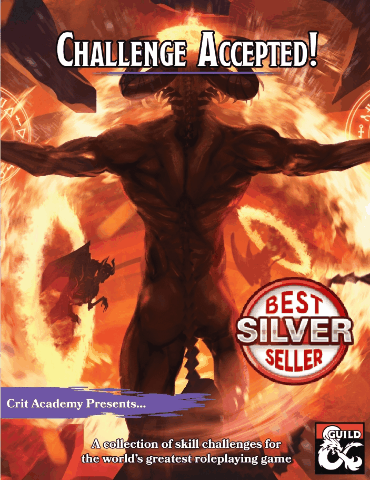So, What Ya Gonna Do Now That the Quest Is Done? | Dungeons & Dragons
- Justin Handlin

- Jun 23, 2022
- 4 min read
Updated: Jun 25, 2022

Guest Writer: Larry Thomas
Larry Thomas is a life-long D&D player (usually a DM) and board gamer. It began when he was a middle school teacher and continued as he rose to become a district superintendent. Now retired, Larry enjoys gaming with his gaming group, writing RPG adventures, traveling, and gardening. Find his landing page at https://linktr.ee/d20larryt
I have been blessed with playing D&D for over 40 years. I am the first to admit that I am definitely NOT the expert.
In my early days, it was hack, slash, grab the treasure, and go on to the next challenge. “Monty Haul” was a fun name tossed about (the name comes from an early “Let’s Make a Deal” game show host). A “Caller” was designated by the group so the DM would clearly understand the group’s actions. (Thankfully, that approach has changed, allowing for more roleplay among every participant. Some of my friends have aged with me through Greyhawk, Eberron, and the Forgotten Realms, D&D, AD&D, and the editions that followed. I like to think that this means my friends agreed with the style of play that we were using. Since the group was made up of the same players every week, we evolved into a campaign approach. We got “into” the characters and started chatting about their interests. Decidedly, the PCs didn’t want to simply jump to another adventure, and they weren’t planning to spend their downtime as a single unit.
Also, in the early days, it didn’t take long for players to amass a medieval high fantasy fortune. For activities between adventures source books focused on purchasing land, building a castle compound, and acquiring followers. Even after concentrating on those goals, there was still a lot of money burning a hole in PCs’ pockets. So, when 5e rolled around and players completed their first adventure, conversations shifted to varied downtime interests.
Now, I suspect that this topic is deeply influenced by your own group’s style of play. Some heroes still want that castle, be the lord over a fiefdom, etc. The 5e sourcebooks mentioned carousing, rumor gathering, gambling, running a business, and other general activities. Here are some other options that my characters discussed, perhaps more specific to player classes:
The ranger desires more training in animal handling, especially with specific beasts.
The rogue wants to perform a “sting” operation on a local family that is held in high regard.
Weapons need to be reconditioned.
The cleric has limited knowledge of the more powerful undead. After his downtime training, the player will be able to access the Monster Manual while combat is on.
The fighter is going to apprentice with a bosun in order to become proficient in working on sailing vessels.
The thief wants to learn how to appraise the value of precious stones and gems.
The mage is finding potential buyers for a few enchanted items.
The druid needs to observe and research certain sea fish. He comes from a landlocked region but will be heading to the ocean soon.
The paladin in the group wants to start a charity or take on some other civic responsibility.
It has occurred to me that certain feats would be perfect additions to the downtime exercises, as well.
There are more possibilities for downtime activities, but you get the idea. Think about your character. What might some of their future needs be? Are there some restrictions on your campaign that your character may overcome if certain downtime training were available? My gaming group inspired me to use some of their ideas and more in a piece I wrote for DMs Guild called Downtime Tales: A Detailed Examination of Options for Downtime.
Once the downtime activity is identified, it flows to the DM to handle the logistics. In my own case, I consider the task(s). Then I go through a checklist (what you see below is not inclusive and may depend upon the task):
Can this location supply this learning? Is the training one-on-one or is it better in a group?
Are there cultural restrictions that discourage the training from occurring? (The PC may have to travel to another location).
How long will this training take?
What can the PC expect once the training is completed? This must be clearly understood so the PC does not anticipate a different result.
What will be the charge? This stuff isn’t free. Payment is usually expected upfront. I like to break things down a bit rather than give a single fee (Finding and then retaining a mentor, materials and travel fees, other unique costs).
Is there a regional range of prices? Prices in Waterdeep might be different from costs for similar services in Daggerford or Silverymoon. Usually, I set a minimum/maximum and let the dice decide.
Significantly in these downtime activities, more of the PCs’ treasure is spent. It tends to make them more mindful of their economics. Personally, I like that my characters may have to struggle financially. That situation can serve to open up other adventures.
I would be very interested in knowing about your downtime activities. Please share them! For more detailed information on this topic check out my piece on DMs Guild, “Downtime Tales.”
Comicbook.com: "...a useful new set of mechanics to provide some much-needed variety to melee weapons."
Rogue Watson: "Weapon Perks adds fun and meaningful new abilities for each weapon, encouraging players to branch out with a much broader variety of choices in combat."
Want to talk more D&D? Join our live streams or check out our past broadcasts on youtube or listen to our podcast while you commute.
Thank you for reading our blog. If you enjoy the content and want to support us, visit our store or follow us on social media, join us on discord, youtube, and leave us a review.
Keep your blades sharp and spells prepared heroes!
*Crit Academy is an Affiliate of Amazon, DMsguild and DriveThruRPG*

















Comments